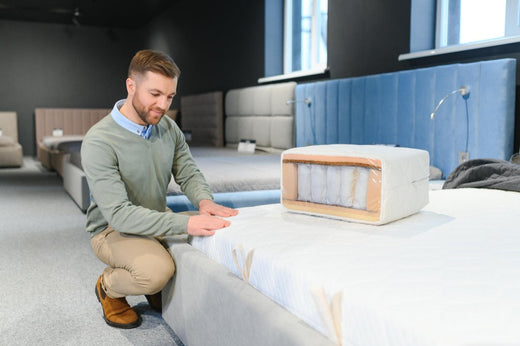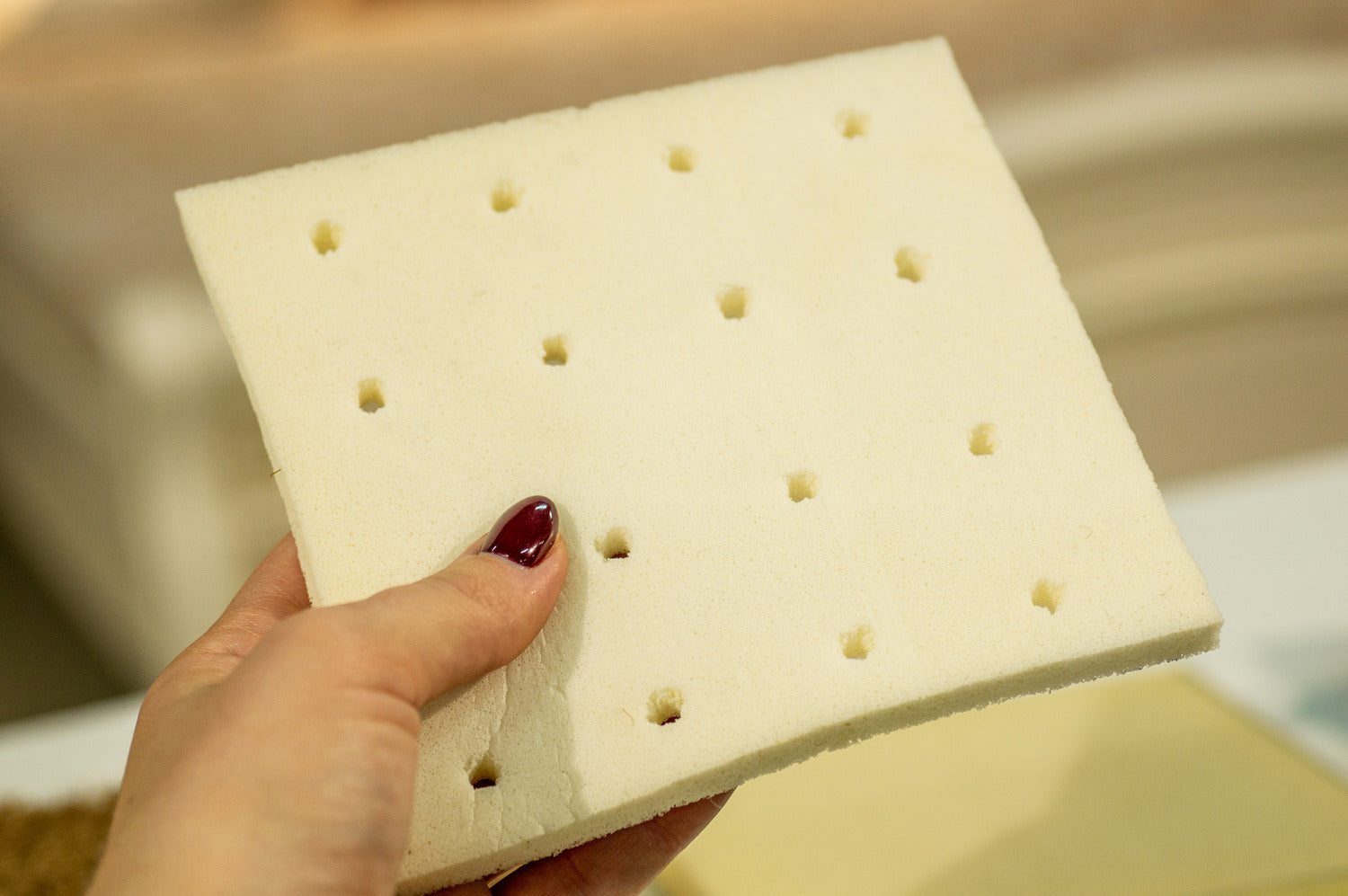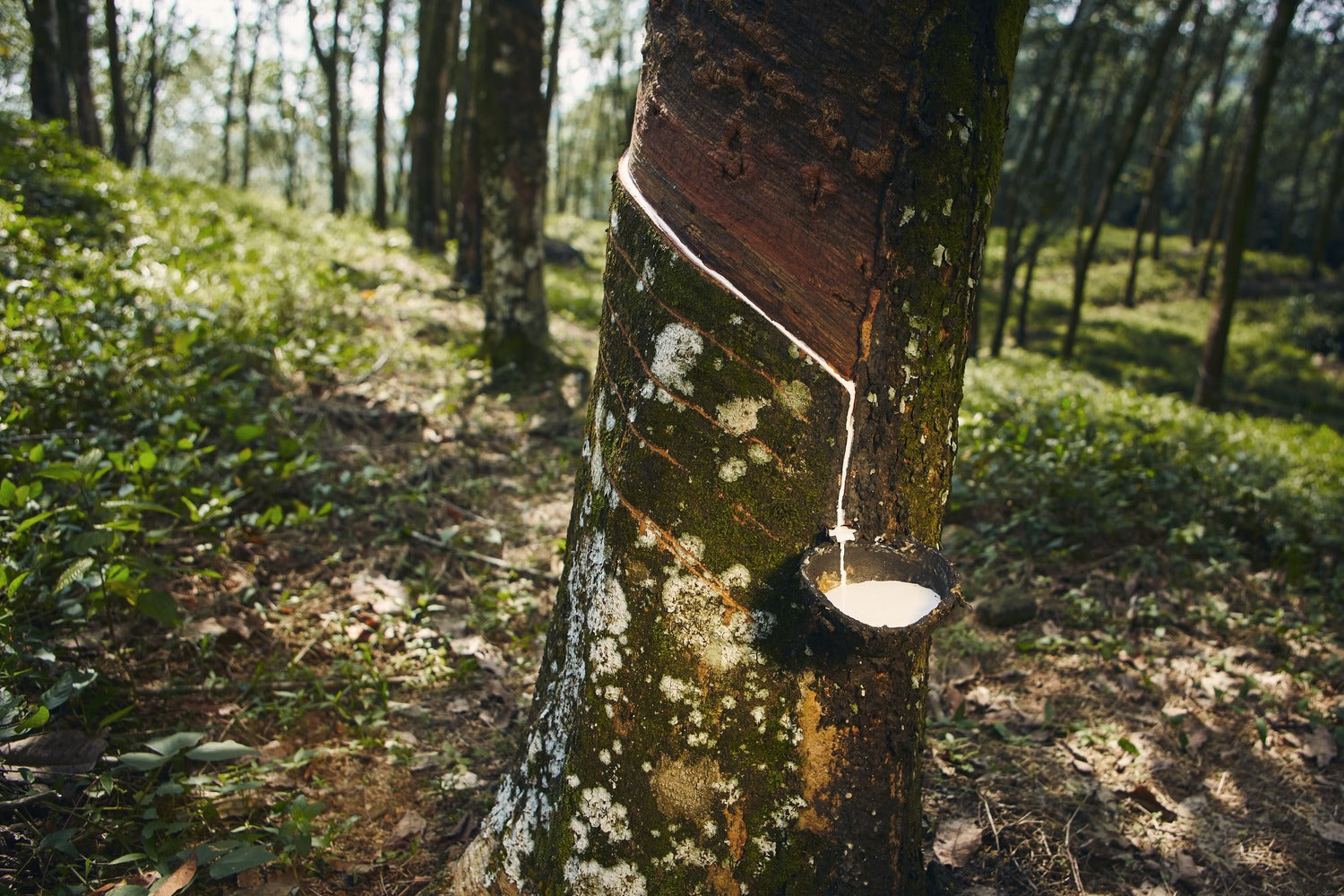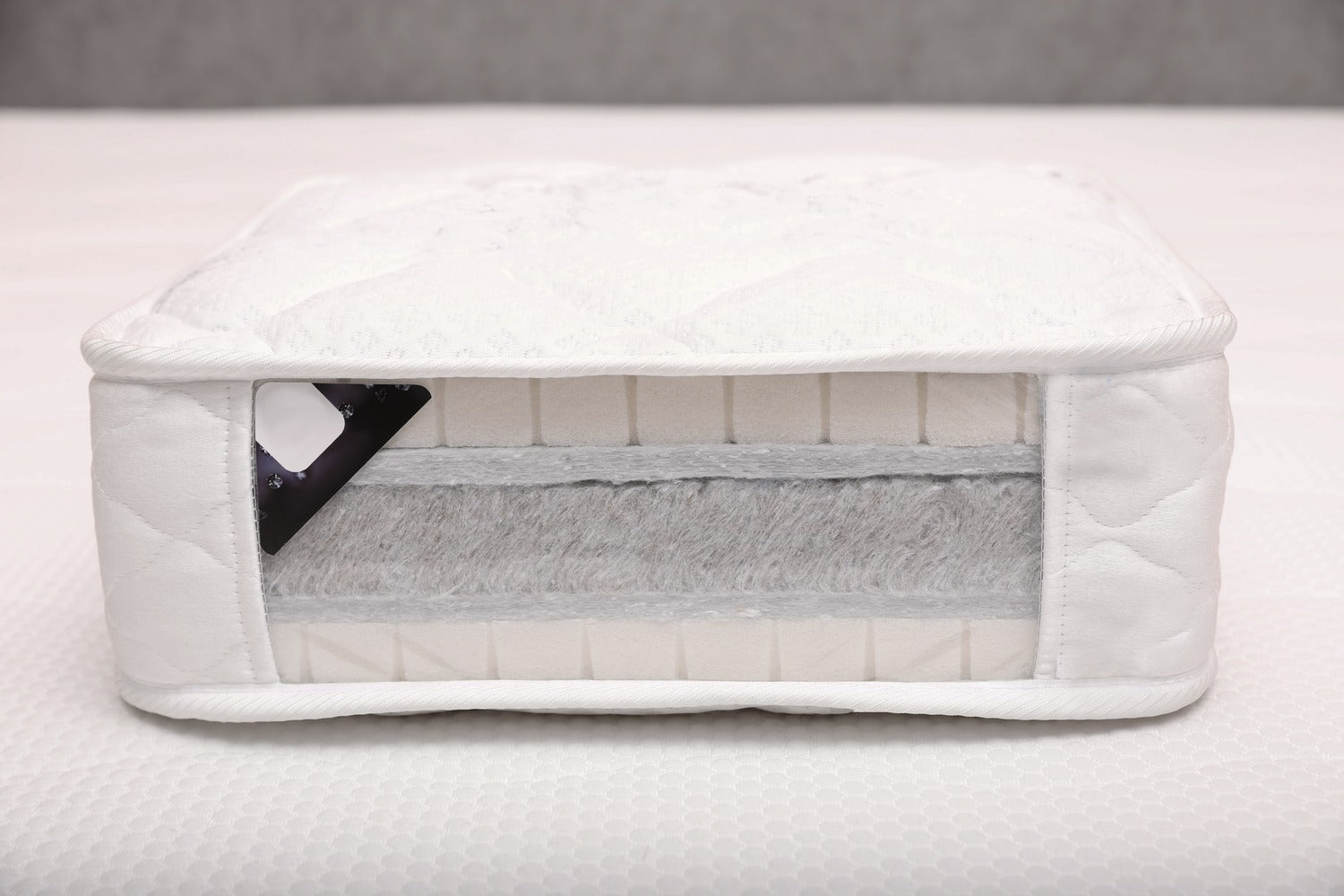A comfortable mattress plays a big part in that. But, like everything, mattresses will not last forever. Knowing what affects the lifespan of your mattress is vital. This will help you get the most out of your money and wake up feeling great.
The lifespan of your mattress can change a lot based on several factors, including your sleeping position. These factors include the quality of your mattress, the materials used, and how well you take care of it. By recognising these factors, you can make wise choices. This way, you can have a peaceful sleep for many years.
What is the average lifespan of a mattress in Cyprus?
In Cyprus, the average lifespan of a mattress is typically estimated at 7 to 10 years. However, several factors can influence this duration. The type of mattress is crucial; memory foam mattresses often last longer than innerspring mattresses due to their resilient materials and construction.
Additionally, your maintenance habits play a significant role in extending its lifespan. Regular rotation, using a mattress protector, and keeping the mattress clean are all effective strategies, and it's important to note that this range serves as a general guideline. How you distribute your body weight and how frequently you use the mattress also impact its wear and tear.
In the warm Cypriot climate, with its high summer temperatures, ensuring proper ventilation and temperature control is essential to prevent the heat and humidity from accelerating degradation. By considering these factors and actively caring for your mattress, you can extend its useful life beyond 7 to 10 years.
How is the lifespan of a mattress determined in Cyprus?
The lifespan of a mattress in Cyprus is determined by various factors, with the quality of the mattress being of utmost importance. A durable mattress constructed from high-quality materials will likely have a longer lifespan than one with inferior components. Additionally, the frequency of use significantly affects how long a mattress remains comfortable and supportive.
For instance, a mattress used every night will experience more wear and tear than one placed in a guest room and used less frequently. Understanding how these factors interact can help individuals maximise the longevity of their mattresses through mattress care, ensuring that they provide restful sleep for an extended period.
By investing in a high-quality mattress and considering usage patterns, individuals can prolong the comfort and functionality of their bedding, allowing for restful and rejuvenating sleep night after night. Regular mattress care maintenance practices such as rotating the mattress and using a quality mattress protector can also contribute to extending its lifespan.
What factors affect the lifespan of a mattress?
Just like people have different sleep habits, the factors that affect how long an old mattress lasts can also differ. However, some everyday things can make your mattress wear out faster if you are not careful. Learning about these issues is the first step to fighting them and getting a longer and more comfortable experience with your mattress.
Some of the main factors that can reduce the life of your mattress include:
-
The quality of materials used
-
The mattress's design and construction
-
How you use it
-
The weight it has to support
-
Regular maintenance you give it
-
The environment around it
-
The base or support system it sits on
1. Material Quality
The materials you choose are essential for your mattress's length. Strong, durable materials, like high-density foams or natural latex, can handle wear and tear better, leading to a longer lifespan for the mattress.
A quality mattress made with these materials can significantly improve your sleep quality. Buying a mattress made from suitable materials is a wise choice. It means you won't have to replace it as often, which is better for your wallet in the long run.
2. Construction and Design
How a mattress is made is just as important as the materials used. A good mattress is designed and built well to be the best mattress. This helps the materials work together, giving you the best support and comfort for a long time.
The mattress's original build quality matters, too. Things like stitching, edge support, and layering can greatly affect its longevity. A mattress made with care is likely to last longer. It will keep its shape and comfort better over time, which means it can pass the test and continue providing the quality you need.
3. Usage
How you use your mattress and how much pressure it experiences can affect its lifespan. For example, a mattress in a spare room that is only occasionally used by guests will last longer than one used every night. Also, moving around a lot on the mattress can make it wear out faster.
If your mattress is used frequently, especially when there's a lot of movement in your current bed, it may not last as long. Knowing how you use your mattress and picking the right one can help you sleep better and make your mattress last longer.
4. Weight Load
The weight a mattress supports affects its lifespan. Heavier people or couples sharing a bed put a lot of weight and pressure on the mattress, which can cause it to sag sooner and not last as long. It's essential to select a mattress to handle your body weight well.
Heavier sleepers should think about getting mattresses made for more weight. These mattresses usually have firmer foams or sturdy spring systems. This helps them give better support and prevent sagging, making the mattress last longer.
5. Maintenance
Regular maintenance is essential for making your mattress last longer. You should rotate your mattress every few months. This helps make wear more even. A mattress protector can protect it from spills and stains.
This also allows it to last longer. You can vacuum your mattress to remove dust mites and dead skin cells. Always follow the manufacturer's instructions for cleaning. Buying a quality mattress cover is a good idea to prevent wear and tear. Caring for your mattress will last longer and give you a good night's sleep.
6. Environment
The environment around your mattress can affect its longevity. For example, high humidity can lead to mould and mildew, harming your mattress and health. Similarly, excessive dryness can cause some materials in a mattress to break easily.
Good airflow is essential for controlling humidity. In humid weather, you could use a dehumidifier or a humidifier. Managing humidity helps keep your sleep area clean and healthy and helps your mattress last longer.
7. Foundation and Support
The foundation your new mattress is on is very important for how long it lasts and how well it works. If you have a weak or broken bed frame or a sagging box spring, your mattress might wear out too soon.
A firm bed frame and a sound box spring provide the proper support. They help spread your weight evenly on the mattress, preventing too much pressure on specific spots. They also help keep your mattress in shape and comfortable for a long time.
How do you expand your mattress lifespan?
Extending the lifespan of your mattress is easy. You don't need complex actions. Just pay attention to how you sleep and follow some simple top tips. This can help you extend the life of your mattress.
These small changes can save you money and help you enjoy a comfy and supportive sleep surface for longer.
1. Use a Mattress Protector
Investing in a quality mattress protector is like giving your mattress strong armour. It protects your mattress from spills, stains, dust mites, and other things that can harm it. This small step can help your mattress last for years.
Mattress protectors work like mattress covers. They defend against spills and stains that can get into the mattress, helping prevent bad smells and germs from growing. They also block dust mites, which can cause allergies, making your sleeping area cleaner.
2. Rotate or Flip Regularly
Regularly turning modern mattresses is an easy way to make them last longer. It helps distribute the wear and tear evenly across the surface, stopping deep indentations and body shapes from forming. This helps keep your mattress looking good and feeling supportive.
Most experts say you should rotate it every 3 to 6 months. This easy practice ensures that every part of the mattress receives equal pressure, helping to prevent it from sagging too soon. By taking care of your mattress this way, you can enjoy steady support and comfort for longer.
3. Ensure Proper Support
It is very important to ensure that your mattress has the right support for its long life. You should invest in a strong bed frame and the right mattress-type box spring or foundation.
A bed frame with a centre support leg can help reduce strain and stop sagging, especially for more oversized mattresses. Ask your mattress manufacturer or retailer about the best foundation for your mattress type. This will help you make the right choice.
4. Keep it Clean
Regular cleaning is essential to help your mattress last longer. Over time, dust mites, dead skin cells, and other allergens can gather in your mattress, causing foul smells and health issues.
Vacuum your mattress with an upholstery attachment every few months to eliminate unwanted things. Also, remember to air out your mattress regularly. Remove all the bedding and let your mattress breathe. This keeps it fresh and prevents moisture buildup.
5. Avoid Sitting on the Edge
Sitting on the edge of your bed while you dress or put on your shoes may be easy. However, doing this often can harm the edge of your mattress, causing it to sag and wear out sooner than it should.
Sit on the edge; heavy items will keep your mattress in good shape. It's also wise to pick a mattress with firm edge support, especially if you like to sit on the edge.
6. Limit bed Activities
It's easy to use your bed for more than just sleeping. You might work, eat, or watch TV while on it. But this can wear out your mattress faster. Activities that involve movement, weight, or spills can make it last less time.
If you only use your bed for sleeping, it will stay in better shape and last longer. A good mattress helps you sleep better and feel more supported over time.
7. Manage Humidity and Ventilation
Controlling humidity levels in your bedroom is very important for your mattress's health. High humidity can cause mould and mildew to grow on your mattress, harming your mattress and your health.
You can follow some simple steps to help: air out your bedding often, use a dehumidifier when it's humid, and make sure your bedroom has good airflow. These actions can help your mattress last longer. Keeping your space dry and well-ventilated stops mould and mildew from growing and protects the materials.
What type of mattress lasts the longest?
While all mattresses aim to be comfy and supportive, some last longer than others. This difference comes from their materials and how they are made. Latex mattresses, especially those made from natural latex, are famous for being strong and lasting long.
Natural latex is a resilient material. It does not sag or lose shape quickly, which helps it last longer. Innerspring beds, especially those with many coils and strong springs, can also last long. Foam mattresses might feel good, but their need for replacement can be higher based on the type of foam used.
How long does a latex mattress last?
Latex mattresses are known for their strength and long-lasting quality, which are influenced by the quality of the materials. A good latex mattress, especially one made from natural latex, can last about 10-12 years or even longer if you take care of it.
The natural bounce of latex helps the mattress return to its original shape each night, stopping sagging and indentations. Natural latex also fights germs and resists dust mites, creating a healthier sleeping space and helping the mattress last longer.
How long does a Spring mattress last?
The lifespan of a spring mattress depends heavily on the type and quality of the springs. Traditional innerspring mattresses, which have connected coils, usually last for a shorter length of time than pocket spring mattresses.
Traditional innerspring mattresses last about 5 to 7 years before they start to sag and lose their support. In contrast, pocket spring mattresses, made with separate coils, often last longer and may benefit from mattress toppers, lasting around 7 to 10 years.
How long does a memory foam mattress last?
Memory foam mattresses are known for their comfort. They mould your body and relieve pressure. Similar to innerspring mattresses, they usually last about 7 to 10 years.
The life of your mattress can depend on factors like the density and quality of the foam. Higher-density memory foam often lasts longer and provides pressure relief, helping the mattress stay in good shape for longer.
Do manufacturers in Cyprus offer guarantees on mattress lifespan?
Yes, many mattress manufacturers in Cyprus stand behind the quality of their products by offering guarantees that cover a specific period. These guarantees vary depending on the manufacturer and mattress type but typically range from 5 to 10 years.
The guarantees often cover defects in materials and artistry, ensuring that you get a replacement or repair if the mattress fails prematurely due to manufacturing issues. Always check the specific guarantee terms the manufacturer offers before making a purchase.
|
Mattress Type |
Typical Guarantee |
Common Coverage |
|
Innerspring |
5-10 years |
Sagging exceeding a certain limit, coil defects |
|
Memory Foam |
5-10 years |
Excessive softening or indentation, foam breakdown |
|
Latex |
10-20 years |
Cracking, loss of elasticity |




